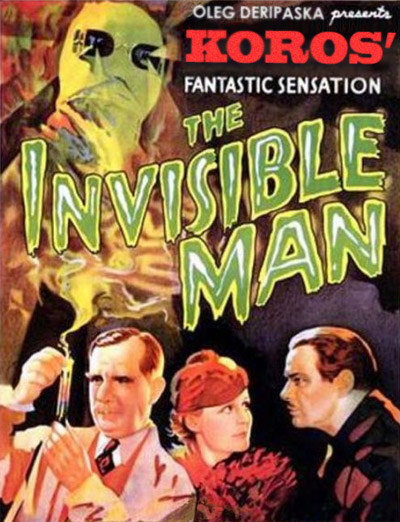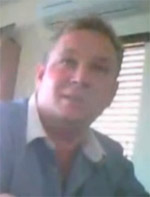
By John Helmer, Moscow
The scandal surrounding Barry Cheung, the Hong Kong politician and former chairman of United Company Rusal, the state aluminium monopoly, has intensified the interest of shareholders and regulators in spending by Rusal’s chief executive, Oleg Deripaska. The company charter and the Hong Kong listing rules require supervision by the independent directors on the Rusal board’s governance, remuneration and audit committees. But Cheung, a member of the first two, has now resigned. Elsie Leung, a member of the audit committee, is facing a no-confidence motion at the Annual General Meeting (AGM) on June 14.
Newly available evidence suggests that Rusal has made an agreement with a London-registered trader whose business seems to have nothing to do with bauxite, alumina or aluminium; whose accounts fail to reveal millions of dollars it has been receiving from Rusal; and whose UK Companies House registration will be wound up next week if it doesn’t file missing financial reports. According to Rusal insiders and sources familiar with the matter, the transfers were for individual services of multi-million dollar importance.
According to Rusal insiders, they have not heard of Koros Trading LLP or of what Koros agreed to do for Rusal in mid-2010. According to their agreement, Rusal began a series of regular payments to Koros; so far Koros has received more than $20 million.
There is no trace of this money in the Rusal accounts for the time period, according to company sources and the company’s published, audited reports. In London, there is also no record of what Koros was doing to earn its money.
In British company law, LLP stands for limited liability partnership. Legislated into existence by the Limited Liability Act of 2000, an LLP can be incorporated in the UK, but have offshore members who need not be identified with precision. They in turn can do their business outside the UK without revealing what they are doing. Such a corporate entity offers its operators unusual secrecy and exemption from the standard requirements to produce regular audited statements of account, pay taxes, disclose owners and managers, etc. An LLP is the corporate equivalent of the invisible man – it can be tax resident nowhere.
A report on LLP operations by Private Eye, published on May 17, said that in March of 2012 almost 53,000 LLPs were registered at the UK Companies House, 49,000 of them active. The number of LLP registrations in the UK has jumped more than fivefold since 2004, and amounts to more than 10% of the entire UK company register. The Private Eye reporters, Richard Brooks and Andrew Bousfield, described the LLP as “the international criminal’s corruption vehicle of choice.”
Koros was first registered in London on October 20, 2009. Its file at Companies House counts seven documents, including its incorporation. GSL Law & Consulting filed the application for Koros; its London address, 60 Cannon Street, also became Koros’s address. But there is no Koros office or mailbox there. The only company members identified are front companies with addresses in Tortola, British Virgin Islands – Imex Executive Ltd. and CLS Secretaries Ltd. The same signature appears for Imex as for GSL Law, and it is illegible. Elsewhere in the Koros file, this turns out to be Jesse Grant Hester.
 Hester turns out to be more visible and better known than Koros. Here he is, at home in Mauritius, providing corporate registration and tax advice.
Hester turns out to be more visible and better known than Koros. Here he is, at home in Mauritius, providing corporate registration and tax advice.
In November 2011, the UK Company Registrar issued a notice that Koros would be struck off the register and dissolved. This produced a statement of account for the year to October 31, 2010; in fact, it’s what is called an “abbreviated account” – an excerpt from balance-sheets which were neither audited nor released. The right to “abbreviate” is another of the special privileges granted to LLPs by the regulations. Hester’s is the name and signature on this financial report.
According to the abbreviation, Koros didn’t say what its revenues were. It did say it had $1.04 million in cash at the bank, and was owed another $1.3 million by its debtors. After $259,378 in debts Koros owed, it counted net current assets of $2.1 million, plus a longer-term amount owing of $657,800. So total assets for Koros at the time amounted to $2.7 million. This is more than Koros had received from Rusal by the report date of October 31, 2010, but considerably less than it was to receive from Rusal over the following months.
Nothing in the Koros file on record says what its business was, or for what services it was earning its regular instalments from Rusal. Koros is now overdue in filing its accounts for 2011, so on March 12, 2013, it received another notice from the Registrar, warning it had three months to catch up, or else face dissolution. The deadline for that filing falls in a few days’ time. The account for 2012 isn’t due until November 17 next. In the filings Koros claims exemption, according to the LLP regulations, from auditing.
Rusal reports dealing with a good many international trading companies to buy its supplies and sell its products. The most important of these traders is Glencore, which also owns an 8.75% shareholding in Rusal. Glencore’s secret trading arrangements with Rusal are the subject of an ongoing suit in the London Court of International Arbitration; there Victor Vekselberg and Len Blavatnik, the Sual Partners with a 15.8% stake in Rusal, are charging Deripaska and Glencore boss Ivan Glasenberg of cash and asset stripping to the benefit of their companies, and to the loss of Rusal and its other shareholders.
If Koros Trading LLP does what its name claims, what does it trade? A search of the internet found just one reference. This pinpoints a location for Koros in Moscow, and names a Moscow representative, Maxim Filippov. A mobile telephone number for him rings without answer. According to this Koros notice, “we deal in Polymers, Chemicals.” According to Rusal insiders, Rusal doesn’t buy or sell polymers or chemicals.
On the appearances, Koros Trading LLP is a front designed to conceal large sums paid out of Rusal to a beneficiary who is hiding his identity. Authority for the Koros payments appears to have come from chief executive Deripaska. Another source, who claims to have learned the identity of a beneficiary from a Russian government source, identified the name of an individual on the receiving end of money earned from trading which the individual was barred by law from doing himself. The source isn’t certain the conduit was Koros.
Additional details are now under investigation by the authorities in London. They say they want to match what they have uncovered of Rusal’s payments to Koros in order to compare them to the accounts Koros files by next week’s deadline. That is, if Koros hasn’t already served its Rusal purpose, and will be allowed to disappear from the UK register.











Leave a Reply